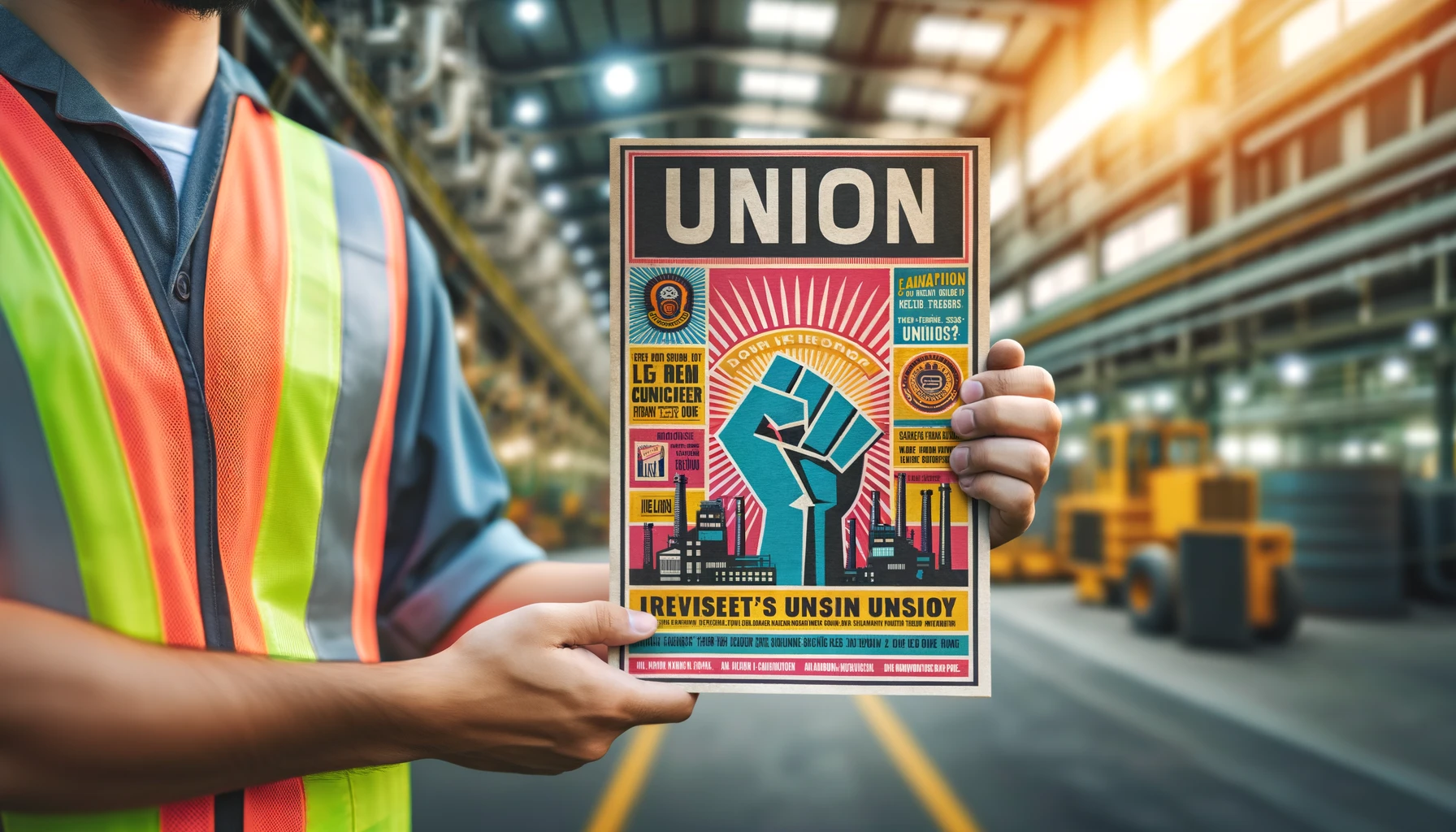Over the course of the next three days, the workers at Volkswagen’s plant in Chattanooga, Tennessee, face a pivotal decision that could significantly influence the role of unions in the Southern United States. The event began on Wednesday morning when hourly employees started to vote on whether they wish to join the United Auto Workers (UAW) union. This vote, concluding at 8 p.m. on Friday, is particularly notable not just for the workers involved, but also for its broader implications in the American labor movement.
The Background of Union Efforts at Volkswagen
The UAW has attempted to unionize the Chattanooga plant of Volkswagen twice in the last ten years without success, which highlights the challenges unions face in gaining a foothold in the South, a region traditionally resistant to unionization. These previous failures underscore a weakening in union influence, which the UAW is keen to reverse.
Recently, the UAW has gained momentum from successful negotiations in Detroit with major automakers, achieving considerable improvements in wages and working conditions. This newfound confidence has fueled a $40 million campaign aimed at increasing union membership at nonunion auto factories across the South, with Volkswagen’s Chattanooga plant being the first major test of this initiative.
What’s at Stake?
For the UAW, a win in Chattanooga could be a significant boost, helping to attract more workers from the region. Conversely, another defeat might dampen the union’s efforts and cause delays in their broader campaign. The stakes are high, as the plant employs around 4,300 production and maintenance workers, all of whom are eligible to vote.
Assembly worker Victor Vaughn, who supports unionization, expressed his view by stating, “Volkswagen is a ‘good’ place to work.” However, he and many of his colleagues believe that having a union could elevate their workplace to being “great” by providing a structured way to address employee concerns.

The Unique Position of the Chattanooga Plant
This Volkswagen facility is unique as it stands as the only plant in the company’s global network without worker representation. Given the history of narrow defeats in union votes here in 2014 and 2019, as well as a failed attempt to form a smaller unionized group in 2015, the outcome of this week’s vote could set an important precedent.
Political Influence and Concerns
The unionization efforts have not gone unnoticed by political figures. Tennessee Governor Bill Lee, a Republican, along with other Southern governors, has expressed opposition to the UAW’s campaign, citing potential economic risks and job losses that could follow from unionization. They argue that unionization could deter companies from investing in the region, which has attracted significant automotive industry investments due to favorable economic conditions, including substantial financial incentives and a non-union environment.
Potential Benefits for Workers
Pro-union workers at the Volkswagen plant argue that union representation could help them secure better pay, benefits, and more flexible vacation policies. Employees like Isaac Meadows highlight issues such as the use of paid leave for mandatory shutdowns, which then limits availability for personal time off. Meadows emphasized, “The biggest thing is we just want a voice.”
Volkswagen’s Stance
Volkswagen has maintained a neutral position publicly, stating on their website that they respect the employees’ right to decide on union representation and stressing the importance of an informed decision-making process. The company has also made significant investments in the Chattanooga plant, which highlights its importance in Volkswagen’s North American strategy, especially as the plant shifts towards producing electric vehicles.
The Bigger Picture
The outcome of the vote at Volkswagen’s Chattanooga plant could influence unionization efforts across the South. A victory for the UAW might encourage similar efforts at other plants, such as the Mercedes-Benz facility in Alabama. American University professor Stephen Silvia emphasizes the significance of the vote. “The UAW has been strongest in Chattanooga, and if they succeed there, then it will build momentum,” he predicts. “If they don’t succeed there, it will make it harder for the other places to organize.”
This article is based on the following article:
https://www.npr.org/2024/04/17/1244279860/volkswagen-uaw-south-union-election-chattanooga-tennessee

Background Information
Understanding these concepts provides a comprehensive backdrop that helps explain why the union vote at Volkswagen’s Chattanooga plant is significant, not just for the workers and the company, but also in the context of broader economic and labor trends in the Southern United States.
1. What is a Union?
A union is an organization formed to protect and advance the interests of its members, typically employees in specific industries. Unions seek to improve working conditions, wages, and benefits for their members through collective bargaining with employers. Collective bargaining is the process by which union representatives negotiate with employers on behalf of the workers to establish a contract dictating the terms of employment.
2. The Automotive Industry in the Southern U.S.
The automotive industry in the Southern United States has grown significantly over the past few decades. Unlike the traditional automotive strongholds in the Northern U.S., particularly in Michigan known as the heart of the American auto industry, the South has attracted numerous foreign automakers through lower labor costs and favorable economic policies. Companies like Volkswagen, Toyota, and Mercedes-Benz have established major manufacturing plants in states like Tennessee, Alabama, and South Carolina.
3. Right to Work Laws
“Right to work” laws are statutes in some U.S. states that prohibit union security agreements between companies and workers’ unions. Under these laws, employees in unionized workplaces cannot be compelled to join the union or pay regular union dues, even though they benefit from the collective bargaining agreements the union negotiates. Tennessee, where the Volkswagen Chattanooga plant is located, is one such state with a right to work law.
4. Economic Incentives
Economic incentives are benefits offered by governments to businesses to encourage investment and job creation within their jurisdictions. These can include tax breaks, subsidies, or grants. For instance, Volkswagen received significant incentives from Tennessee when it decided to establish its plant in Chattanooga. These incentives are often pivotal in attracting foreign companies to invest in regions, contributing to local economic growth.
5. Impact of Unions on Local Economies
There is a debate about the impact of unions on local economies. Supporters argue that unions help secure better wages and benefits, which in turn boosts local economies through increased spending. Critics, however, claim that unions can lead to higher labor costs, making local businesses less competitive and potentially deterring investment.
6. Historical Unionization Efforts and Challenges
Unionization efforts, particularly in traditionally non-union regions like the Southern U.S., face numerous challenges. These include opposition from local politicians and cultural attitudes towards union membership. Historically, the South has been less receptive to unionization compared to the North. This is partly due to the region’s industrial history and its economic strategies that emphasize low-cost labor as a competitive advantage.

Debate/Essay Questions
- Should workers prioritize union representation to secure better wages and benefits, even if it risks deterring future investment in their region?
- Do “right to work” laws benefit or harm workers?
- Is the economic growth resulting from attracting foreign automakers with substantial incentives worth the potential sacrifice in worker rights and unionization?
- Does the presence of a union in a workplace necessarily lead to better job security and working conditions?
Please subscribe to Insight Fortnight, our biweekly newsletter!
